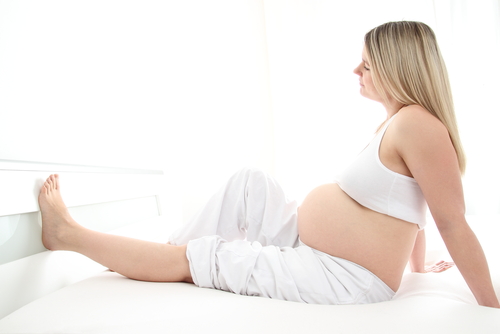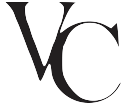You may already know that women are more prone to get varicose veins than men. But why is this? Well, one reason is from hormones present during various times in a woman’s life. Estrogen and progesterone can both play a part in the development of varicose veins.
Learn more about how these hormones can affect your vein health, and what you can do about varicose veins caused by progesterone imbalance.
How Does Progesterone Cause Varicose Veins
Hormonal changes in progesterone and estrogen can be responsible for the development of varicose veins. While the hormones are needed to keep the body functioning as it should, an imbalance can have adverse effects.
Progesterone can have a significant impact on overall vein health and the formation of varicose veins. It’s reduced presence can dilate small veins and make them more visible than they would be otherwise.
Veins in the legs, known as the saphenous veins, have shown to be more sensitive to imbalances in progesterone. As progesterone levels fluctuate, damage can occur. Weakened vessel walls can’t handle blood pressure increases. With increased pressure, the vein can become dilated and unable to transport blood effectively. These veins may become enlarged and twisted as they overfill with blood.
Imbalanced progesterone can also lead to damage of the small valves inside veins. These valves keep the blood flowing in one direction, toward the heart. If the valves aren’t working correctly, a backflow of blood can occur, causing further swelling and damage to already weakened vein walls.
Effects of Pregnancy on Varicose Veins
Pregnancy comes with a slew of bodily changes, and your veins aren’t left out of the mix. Many women find that their new little one also came with some new, not-so-little varicose veins.
During pregnancy, hormone levels change drastically. Even within the first trimester, many women will begin to develop venous conditions due to changes in progesterone levels. They may notice small spider veins popping up all around their body and varicose veins, as well.
Blood volume increases during pregnancy, from 20% to 100% more blood compared to prepregnancy. This increase in blood volume to move through the body can put additional stress on weakened veins. Vein walls fill up with more blood and plasma than they are equipped to handle, and this plays a role in the enlargement of veins. 
Hormonal changes in progesterone can also cause the mother to retain water and gain weight. These additional factors can intensify the pressure on veins and exacerbate the issue. After birth, many women will see an improvement in varicose veins in the months to come, but some do not. With each additional pregnancy, vein damage increases, and abnormal veins may not disappear on their own.
Hormones During Menopause That Effect Vein Health
Menopause occurs as women age, often in their 40’s or 50’s. During this time, menstrual cycles cease as hormones change. The ovaries stop producing the same levels of hormones and progesterone and estrogen quantities will drop. This drop weakens the veins, and damage can begin to occur. With advanced age, the skin may have become less elastic and thin, and this can make varicose veins easier to spot from the surface.
Up until this point, some women who never had varicose veins may start noticing them for the first time. Those who previously developed varicose veins may see them worsen and develop more, especially in the legs.
Weakened vein walls aren’t as able to hold blood or transfer it through the body. As valves stop working efficiently, more pressure is put on each vein, causing them to bulge. In that area, circulation may decrease, causing small spider veins to form all around the area. Poor circulation contributes to paper-thin skin, which can turn an internal vein issue into a varicose ulcer.
Along with declining vein health, women may also experience these symptoms with menopause:
- Night Sweats
- Hot Flashes
- Vaginal Dryness
- Sleep Problems
- Mood Changes
- Weight Gain
- Thinning of Hair
These weakened vein walls and valves and weight gain from menopause can make the risk of developing varicose veins even more probable. More serious vein health concerns can occur if venous disorders like this are left untreated.
What Can You Do About Varicose Veins Caused by Hormones?
While varicose veins can be part hereditary, there are steps you can take to minimize their formation.
Try these herbs and supplements:
- Horse Chestnut: This herb has been used to help improve the appearance of varicose and spider veins. Horse chestnut is a toner that helps to tighten the veins. It helps to seal the tiny broken capillaries that appear on the surface of the skin. This herb can also inhibit enzymes that break down blood vessels and protect veins.
- Vitamin C: Over time, the use of vitamin C can help restore vein health. This compound is a building block in veins and blood vessels, and it can help make them stronger.
Exercise!
If you have a desk job or spend a lot of time sitting down, getting your blood flowing can improve vein health and the appearance of varicose veins. Muscle movement helps to push pooled blood back through the body. Getting your circulation going can help remove the heavy pressure in legs with malfunctioning varicose veins.
Stay Cool.
Getting overheated can make varicose veins worse. The heat causes the vein to dilate and open up more than they should. This extra blood can get trapped and make swelling and pain worse. Avoid hot baths and jacuzzis and stay in the shade. If you are outside, find ways to keep cool like ice water, portable fan, or wet towels laid over your legs.
If you are experiencing varicose veins after menopause, The Vein Centre can help. We offer comprehensive vein health screenings to assess any significant health concerns related to vein disease. When treatment is needed, our offices in Nashville, Brentwood, and Franklin, Tennessee, have board-certified vascular surgeons ready to conduct your procedure. Procedures range from cosmetic to medical, and our team can help you decide what path is best for your health. Give us a call at 615.269.9007 to schedule an appointment.



